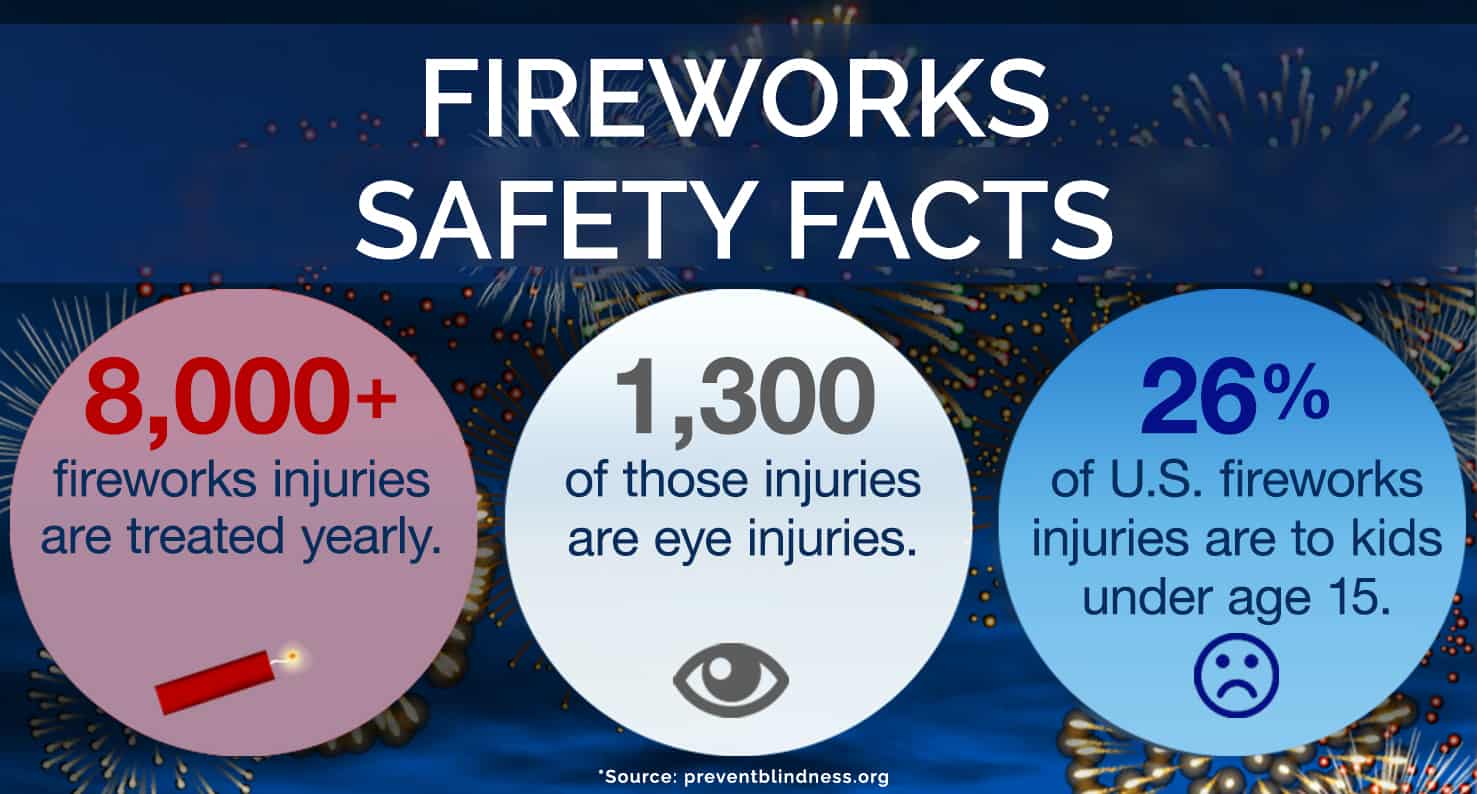
Firework related injuries can cause significant trauma and injuries to individuals. Studies have shown that hands and eyes are the most injured, with the loss of hand function and blindness being the most common and serious injuries. In the most recent annual report from the United States Consumer Product Safety Commission (CPSC), The commission found that there were an estimated 10,300 fireworks related injuries treated at US hospital emergency rooms. The report also found some of the following statistics relating to firework injuries.
- 71% of fireworks-related injuries were to males.
- 14% of fireworks-related injuries were to the eyes.
- Firecrackers were the leading cause of fireworks-related injuries, followed by sparklers.
- Adults ages 20-24 years had the highest estimated rate of emergency department-treated, fireworks-related injuries.
Children younger than the age of 15 accounted for 26% of estimated injuries. Some of these injuries were the result of using sparklers. Unbeknownst to many, sparklers can burn at temperatures up to 1800 degrees. It is vital that parents supervise their children when celebrating and using these fireworks.
Other studies have found that bystanders can account for almost half of all fireworks related injuries. All individuals must be vigilant during any type of celebration that includes fireworks. Either simply observing the fireworks or taking part in a celebration, everyone should be aware of their surroundings and remain a safe distance from all threats.
Here are some firework safety tips from the American Academy of Ophthalmology to follow to remain safe if your family tradition includes lighting fireworks at home:
- Observe local laws and use consumer fireworks
- Wear protective eyewear. Fireworks-related eye injuries are typically a mix of blunt force trauma, heat burns, and chemical exposure.
- Do not allow young children to play with fireworks. Sparklers, a firework often considered to be the ideal “safe” device for youth, burn at very high temperatures and should not be handled by young children. Children may not understand the danger of fireworks and may not act appropriately while using the devices or in emergencies.
- Set of fireworks outdoors in a clear area, away from a house, structure, dry leaves, grass, and other flammable materials.
- Keep a bucket of water nearby for emergencies and for pouring on fireworks that fail to ignite or explode.
- Do not try to relight or handle malfunctioning or “dud” fireworks. Soak them with water and throw them away.
- Be sure other people are out of range before lighting fireworks.
- Never light fireworks in a container, especially a glass or metal container.
- Keep unused fireworks away from firing areas.
- Store fireworks in a cool, dry place.
- Check instructions for particular storage directions.
- Never have any portion of your body directly over a firework while lighting.
- Do not experiment with homemade fireworks.
If you or someone you are with experiences an eye emergency, here are some tips to follow.
- Seek medical attention immediately.
- Do not rub the eye or the surrounding area. Rubbing may increase bleeding or cause the injury to become worse.
- Do not rinse the eye out with water or any liquid. Rinsing the eye can cause more damage than rubbing.
- Do not apply pressure to the eye or the injury. Protecting the eye from further contact with any item is important.
- Do not stop to take any type of medicine or pain reliever. Finding medical attention or going to the emergency room is the most important thing. Time is of the essence.
- Do not apply any ointment or lotion to the injury. This may cause the area to become slippery and hinder medical personnel from being able to examine the injury. Also, the ointment or lotion may not be sterile.

As we celebrate America and our freedom, remember to do it safely.






